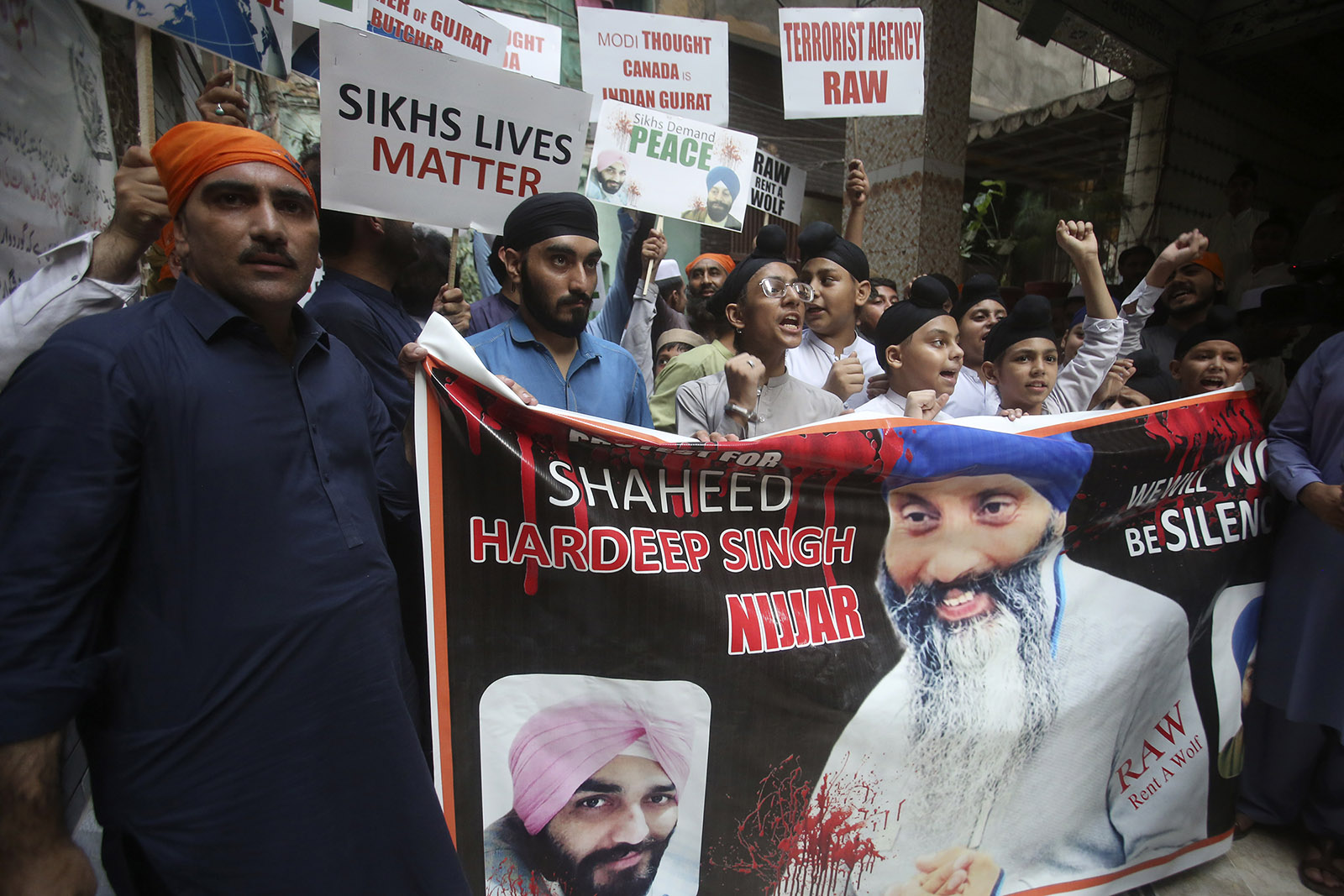(RNS) — I am a Sikh activist committed to peace, justice and reconciliation who has lived in the United States since 1989 and actively worked on interfaith engagement for over three decades. Never before have I felt as in danger here as I do now.
In October 1984, five years before I came to the United States from India, an American of Taiwanese descent, Henry Liu, was gunned down outside his home in California by two men. Mr. Liu had published a biography critical of the then-Taiwanese president. The U.S. government traced the killings back to an intelligence officer in the government of Taiwan. Within three months, the Taiwan government admitted to its role in the murder of a U.S. citizen on American soil and then worked with the U.S. government to put guardrails in place so this would not happen again.
I recently published an editorial at RNS in which I argued that India must be held accountable for the death of Sikh Hardeep Singh Nijjar, a Canadian citizen killed in Vancouver on June 18, 2023. While Canada’s response to this incident was to stand up for its sovereignty and “rules-based international order,” India’s response has been aggressive, geo-political and retaliatory, accusing Canada of being a “haven for terrorists.”
Now, just a few days ago, the U.S. Department of Justice filed charges in a plot to assassinate a Sikh activist and lawyer in New York City. An Indian government intelligence officer was implicated in directing the plan to kill Gurpatwant Singh Pannun, a Sikh activist and dual U.S.-Canadian citizen. The senior Indian intelligence officer worked with Indian citizen Nikhil Gupta to arrange a hitman. The hitman hired was an undercover U.S. informer.
The U.S. now has evidence that a day after the murder of Nijjar in Canada, the Indian conspirators had conversations indicating it was time to murder Pannun in the U.S. next. Both Nijjar and Pannun were involved with Sikhs for Justice, which was established to hold Indian politicians responsible for the genocidal anti-Sikh pogroms in India in the 1980s.

Members of the Sikh community hold a protest against the killing of Hardeep Singh Nijjar, shown on a banner, in Peshawar, Pakistan, Wednesday, Sept. 20, 2023. Dozens of Sikhs living in Pakistan rallied against the killing of Nijjar, a 45-year-old Sikh leader who was killed by masked gunmen in Canada in June. (AP Photo/Muhammad Sajjad)
And then there are two other unresolved recent killings of Sikh activists — Avtar Singh Khanda, allegedly poisoned to death in mid-June 2023 in the United Kingdom, and Paramjit Singh Panjwar, shot dead in early May 2023 by masked gunmen in Pakistan.
Why would the Indian government target four Sikh activists in four different countries in a matter of two months? Human rights organizations have documented over 50,000 Sikhs who were subject to extra-judicial killings or enforced disappearances in Punjab from 1980 through the mid-1990s, including the murder of human rights lawyer Jaswant Singh Khalra. Now that the peace of the graveyard has been established in Punjab, it seems the Indian government has turned its attention to the transnational extra-judicial murder of Sikh activists.
We have learned to expect such repressive and dangerous behavior from countries like Iran, North Korea, Saudi Arabia and Russia. But now we see that a democracy such as India — long an ally of the U.S. and Canada — has been caught “red-handed.” India needs to follow the example of Taiwan rather than pursuing its current policy of “attack is the best form of defense,” which is classic authoritarian playbook politics.
So, what does the U.S. government need to do in this case? As has been rightfully demanded by government officials, those responsible for directing the murder plot in the Indian government must be held accountable, and new guardrails must be put in place. This is a matter of global religious nationalism, the rule of law, human security and holding democracies to account.
But there is a deeper issue in U.S.-India relations that needs parsing. The two countries’ relations have been based on “shared interests,” especially the need to counter the China-Russia alliance, rather than on “shared values.” This marriage of convenience has to end. As a nation that respects human dignity and upholds democracy, the U.S. must focus on strategic alliances with countries that share our values and uphold democracy instead of on short-term geo-political gains.
The transnational extra-judicial killings of Sikh activists abroad are also reflected in the recent rise of right-wing Hindu nationalism here in the U.S., not just in India. America has long been admired for constitutionally recognizing secularism and protecting the flourishing of diverse and vibrant religious life. Therefore, as Americans, we have to push back against all forms of religious nationalism in our country.
My own commitment to peace, justice and reconciliation is grounded in a verse from Siri Guru Granth Sahib, “soora so pehchaniyae jo larae deen ka hait” (brave is the one who struggles for the weak and oppressed).
I will continue working with others to put up “shops of love in the bazaars of hate” — no matter what the future holds.
(Tarunjit Singh Butalia is a founding trustee of the Sikh Council on Interfaith Relations, executive director of Religions for Peace USA and vice-chair of Faith in Public Life. The views expressed in this commentary do not necessarily reflect those of Religion News Service.)





